European countries battle to save Christmas amid Covid surge
European countries are battling to save Christmas as Covid cases surge — even in highly vaccinated nations — amid violent protests against restrictions.
Europe is scrambling to regain control over a resurgent coronavirus as Christmas approaches, even in countries that feature high vaccination rates.
Berlin, Paris and Lisbon were among capitals weighing tighter Covid restrictions and broader vaccination campaigns as surging cases and the approaching winter threatens to send many countries back into lockdowns.
In the European Union, 67.7 per cent of the population is fully vaccinated but rates vary widely between countries, with low levels in many eastern countries.
Only 24.2 per cent of Bulgarians are fully vaccinated, compared with 86.7 per cent in Portugal.
According to World Health Organisation data, Covid-related deaths in Europe increased last week to almost 4200 a day, doubling from 2100 a day at the end of September.
The worst hit countries appear to be those with the lowest vaccination rates.
Covid vaccination and death rate in Europe - in one devastating chart pic.twitter.com/rPmIYKNKIo
— Ryan Heath (@PoliticoRyan) November 23, 2021
Deakin University epidemiologist Professor Catherine Bennett said infections seemed to be rising in countries with the lowest rates of vaccination and those further to the north as they were experiencing colder temperatures earlier.
“Vaccinations are working but it is not complete protection and going into winter is the riskiest time,” she said.
She said the “seasonal effect” is expected to continue, although things can change as treatments and vaccinations for Covid improve.
Even countries with relatively high rates of vaccination are now tightening Covid measures that have only recently been relaxed.
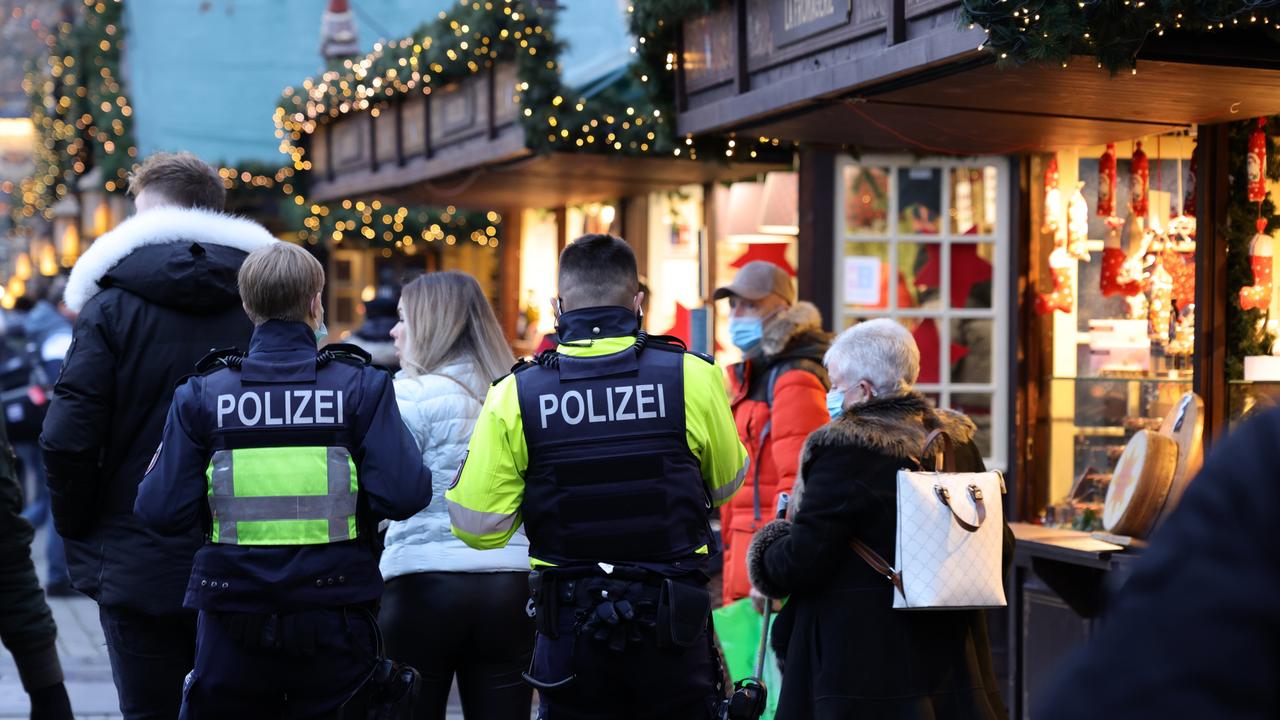
Portugal, which has an 86-percent vaccination rate, is bringing in restrictions amid an uptick in cases, even though its increase has not been as bad as in other countries.
Residents will again be asked to wear masks, and show evidence of vaccination to enter restaurants and other venues. People will also be asked to work from home in the New Year, and bars and nightclubs will be closed.
“This makes it less likely they’ll have to bring in more extreme measures to bring cases under control, Prof Bennett said.
“Early, modest intervention is what you want to do — and of course the (vaccine) boosters.”
Push for vaccine booster shots
Europe’s return to the pandemic’s epicentre has been blamed on sluggish vaccine uptake in some nations, the highly contagious Delta variant, colder weather moving people indoors again and the easing of restrictions.
The discovery of a new and troubling Covid strain in South Africa has also been a stark reminder that the fight against Covid-19 is far from won.
The World Health Organisation has said evidence is growing that protection provided by vaccines against infection and mild disease was declining, highlighting the importance of booster shots.
Several countries, including Greece, France and Germany, are moving towards requiring a third booster shot for someone to be considered fully vaccinated.
From January 15, people over 18 in France will need to show proof of a top-up vaccine dose to maintain a valid Covid pass, which is required to enter restaurants, bars, gyms and other public venues.
Adding pressure, the EU Commission recommended that the bloc’s vaccination certificate should become invalid once the holder’s latest dose is more than nine months old.
‘Pure violence by idiots’
The prospect of a winter under renewed restrictions has also sparked unrest in several countries.
There were violent protests against new anti-Covid measures in Belgium, the Netherlands and France’s Caribbean islands of Guadeloupe and Martinique.
Dutch police arrested at least 21 people during a fourth night of clashes, which Prime Minister Mark Rutte labelled “pure violence” by “idiots”.
His Belgian counterpart Alexander De Croo called violence at a 35,000-strong protest in Brussels “absolutely unacceptable”.
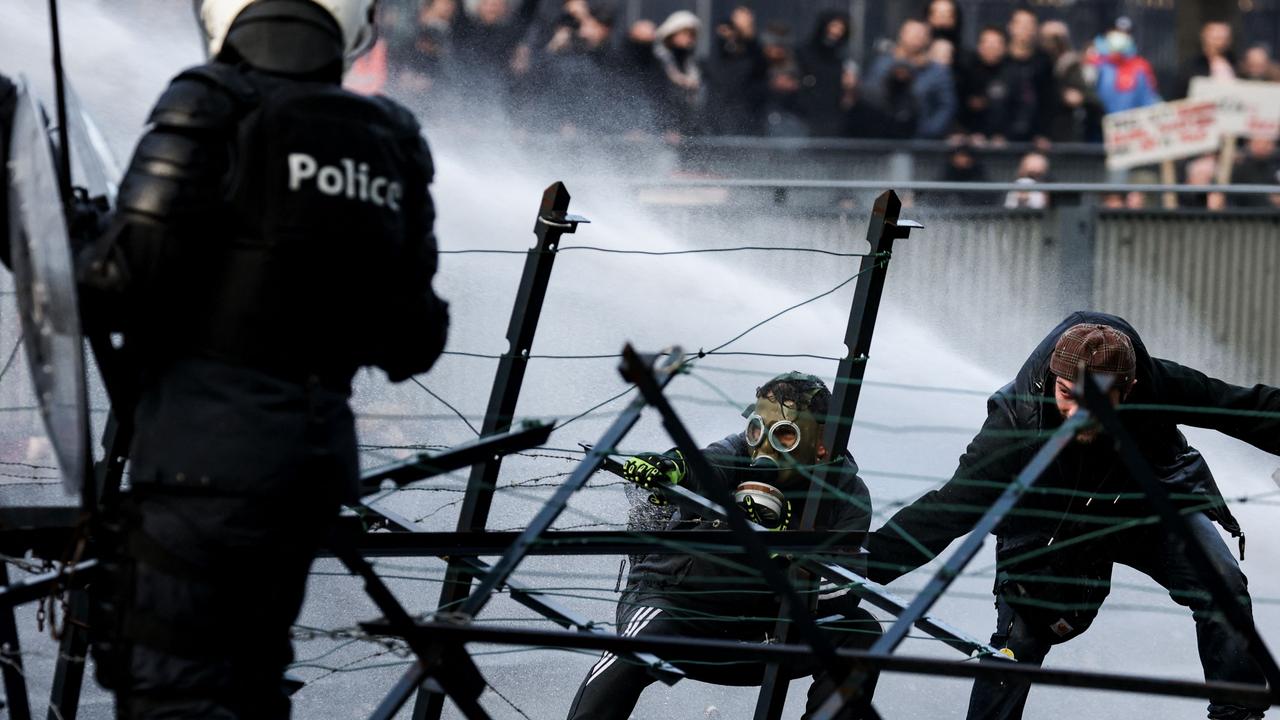
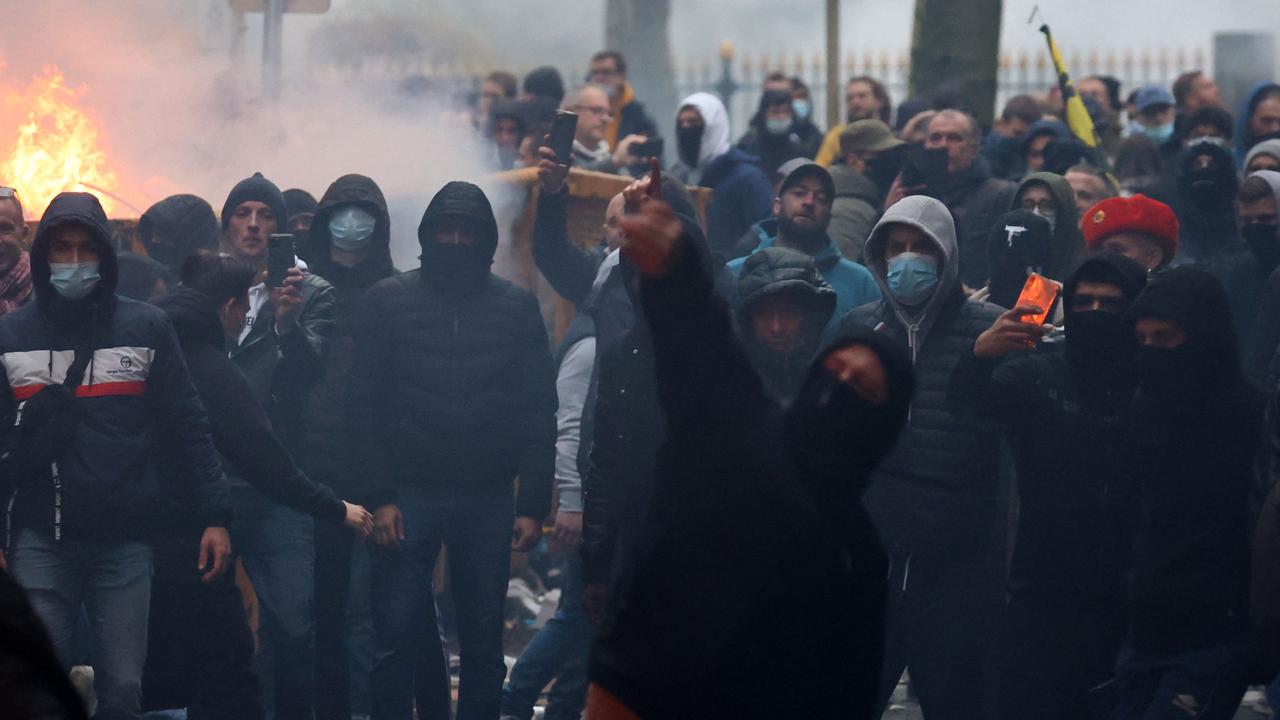
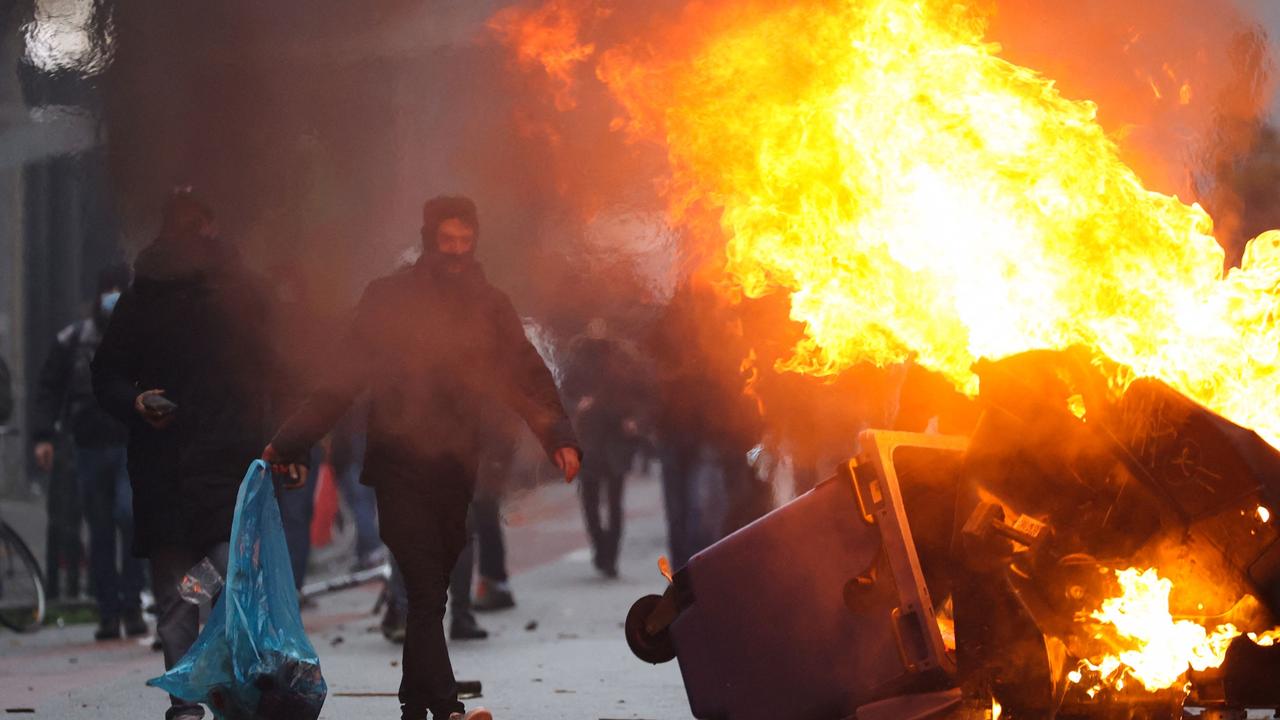
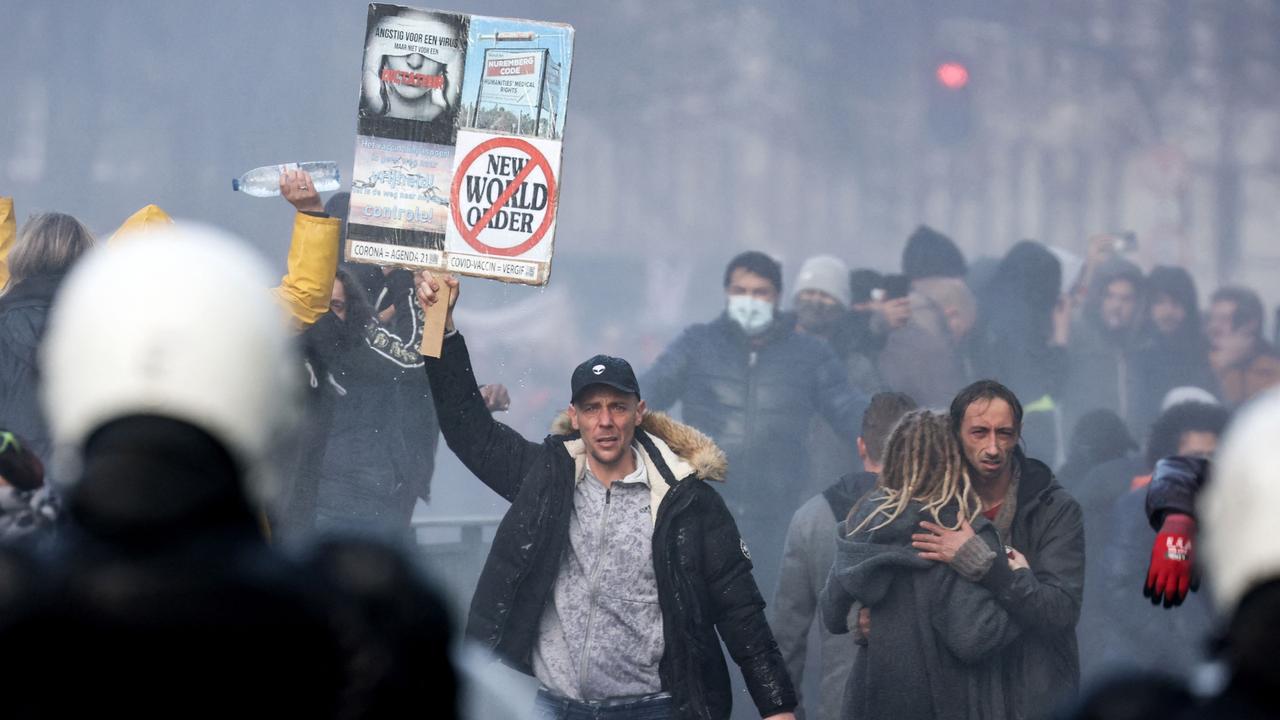
Countries forced back into lockdowns
Meanwhile countries like Slovakia and Austria have reintroduced lockdowns this week, while the Czech Republic declared a 30-day state of emergency.
Austria, where just 66 per cent of the population is vaccinated, shut its shops, restaurants and festive markets for a maximum of 20 days, returning to lockdown in the most dramatic Covid-19 restriction seen in Western Europe for months.
The decision prompted a fierce backlash, with tens of thousands taking to the streets, some blaming the government for not doing more to avert the latest Covid wave crashing into Europe.
Austrian residents will also have to be vaccinated from February 1 — with the country joining the Vatican as the only places in Europe with such a requirement.
In Slovakia, where 45.7 per cent of the population is fully vaccinated, infection rates have risen to 980 cases per 100,000 residents over seven days, according to an AFP count based on official tolls up to Wednesday.
That is the fourth highest infection rate in the world after Austria, the Czech Republic and Slovenia. The country is now in a two-week lockdown.
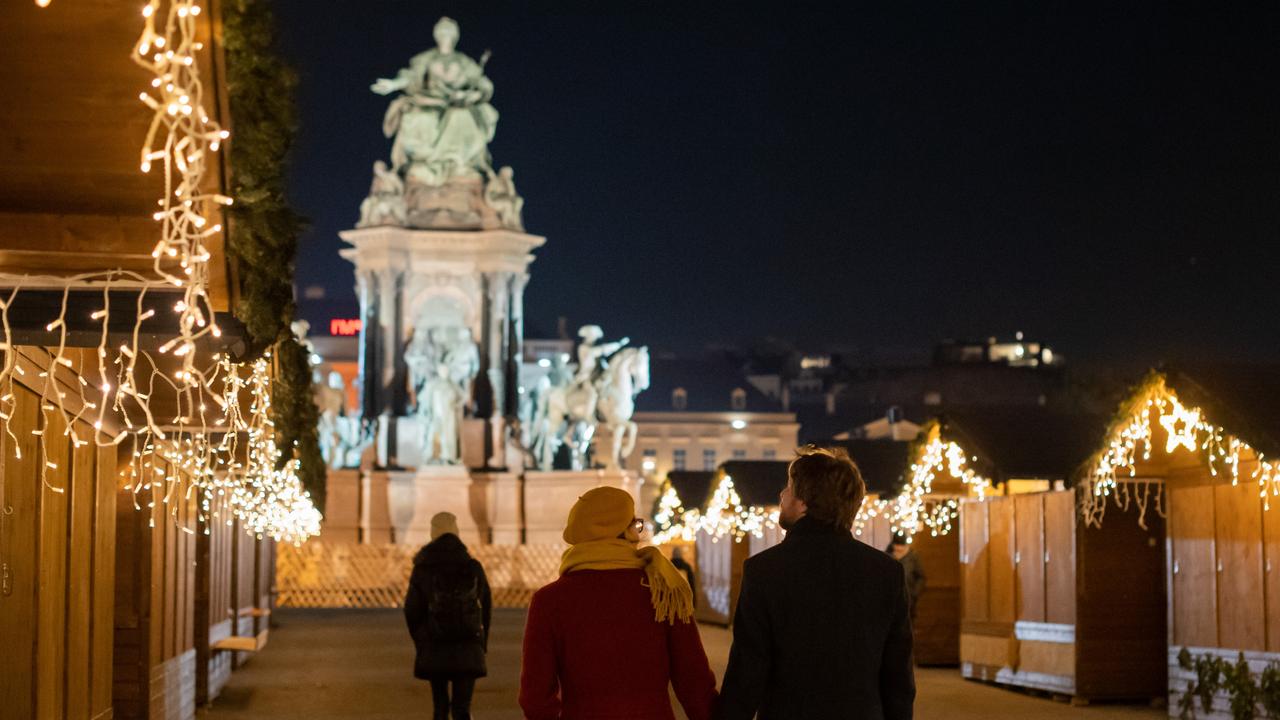
The Czech government also declared a 30-day state of emergency on Thursday, closing Christmas markets as well as nightclubs, after infections rose to a record-high of 25,877 new cases this week.
Czech Republic President Milos Zeman returned to hospital just hours after being released to name a new prime minister as he tested positive for Covid-19.
Worst-hit areas cancel Christmas activities
The rise in cases and hospitalisations have also ignited a fierce debate in Germany about whether to follow Austria’s example and make vaccination mandatory for all citizens.
Outgoing Chancellor Angela Merkel warned the country was not doing enough to curb its “highly dramatic” fourth wave of the pandemic.
The US State Department has urged Americans not to travel to Germany or neighbouring Denmark because of the surging Covid case numbers.
Its crisis has in part been blamed on its relatively low vaccination rate of about 69 per cent, compared to other Western European countries such as France, where it is 75 per cent.
The country reported a record 351 Covid fatalities this week, taking the official death toll since the start of the pandemic past 100,000.
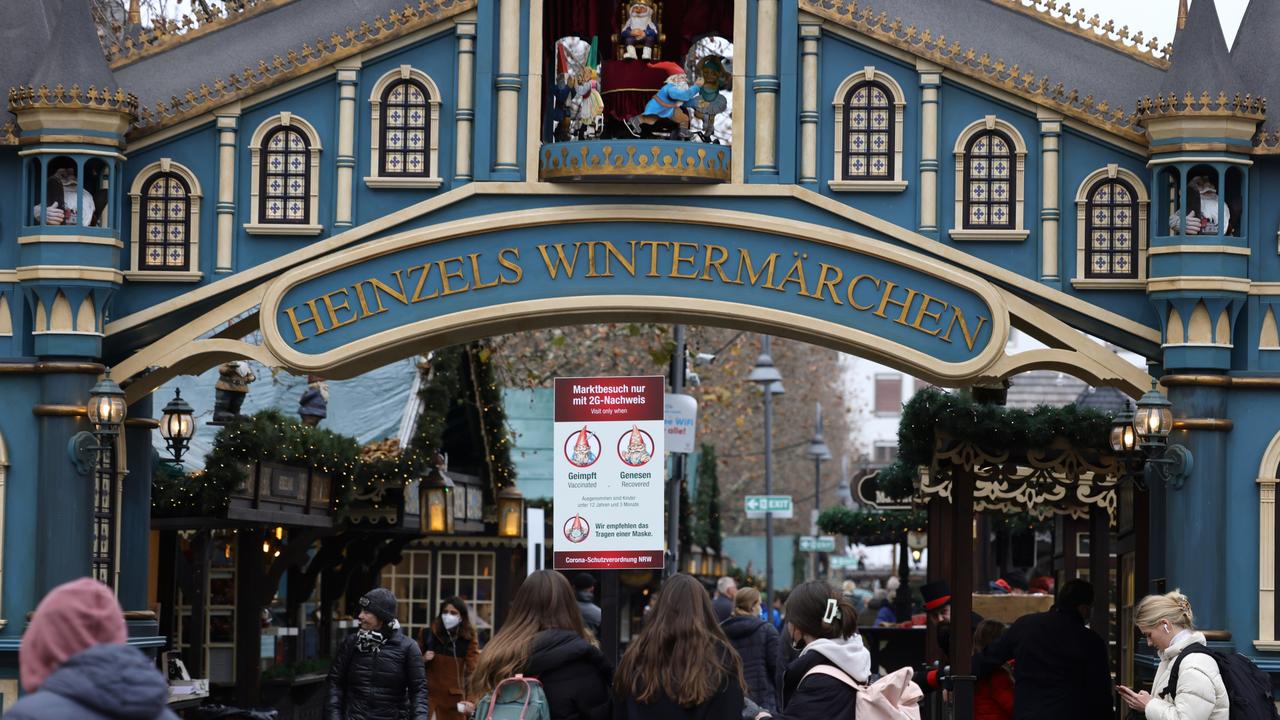
The country, whose booster shots program has been marred by supply and logistics snags, has had to call on hospitals elsewhere in the EU for help as some clinics face overload.
Several of the worst-hit areas have cancelled Christmas markets and barred the unvaccinated from bars, gyms and leisure facilities.
Last week authorities began requiring people to prove they are vaccinated, have recovered from Covid or recently tested negative before they can travel on public transport or enter workplaces.
Warning that “every day counts”, Ms Merkel urged her successor government for “more contact restrictions”.






